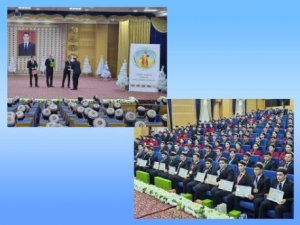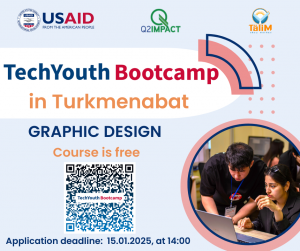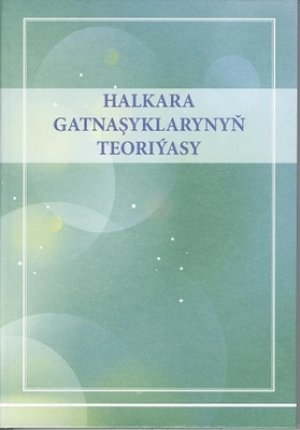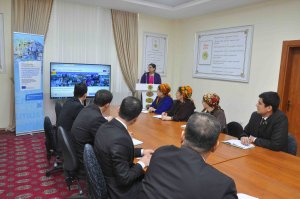The OSCE Centre in Ashgabat organized a two-day seminar on modernizing journalism education and presented recommendations for a new Master’s programme in digital journalism and one in political communication. They were developed as part of the Centre’s projects in Ashgabat “Support in strengthening journalism education and capacity-building of journalists”.
The event took place on 1 and 2 June 2021.Participants were representatives from journalism faculties of the Institute of International Relations of Ministry of Foreign Affairs of Turkmenistan, the Institute of State, Law and Democracy, Magtymguly State University, the International University for Humanities and Development, Turkmen State Institute of Physical Education and Sport, as well as specialists and members from the Ministry of Education, Mejlis (Parliament) of Turkmenistan and national media.
International experts from the United Kingdom and the Russian Federation developed and presented recommendations for the Master’s programmes based on the best international practices of OSCE participating States.
“The two subjects are important aspects of the modern media environment. As we know, the practice of journalism is in transition. Ever evolving digital and networked communication technologies combined with the stagnation and decline of many traditional mass media has had a profound impact on the way the journalism works,” stated John MacGregor, Head of the OSCE Centre in Ashgabat.
He also added: “Political communication is also vital, as they help politicians run for office develop policies and legislation for the social good, educate the general public on socio-political issues, and promote greater participation in democracy.”
“It is my firm belief that these Master programmes will contribute to the emergence of new generation of professionals in Turkmenistan equipped with the state-of-the-art knowledge and skills, which will enable them to efficiently work in the modern professional environment,” said MacGregor.
Recommendations outlined the structure of the courses covering the benefits to the economy and the future of journalism and communication, length of the course as per international standards, objectives, learning outcomes, topics to cover, credit allocations, tests and exams and student exchange programmes as well as the best methods of teaching based on international best practice.













